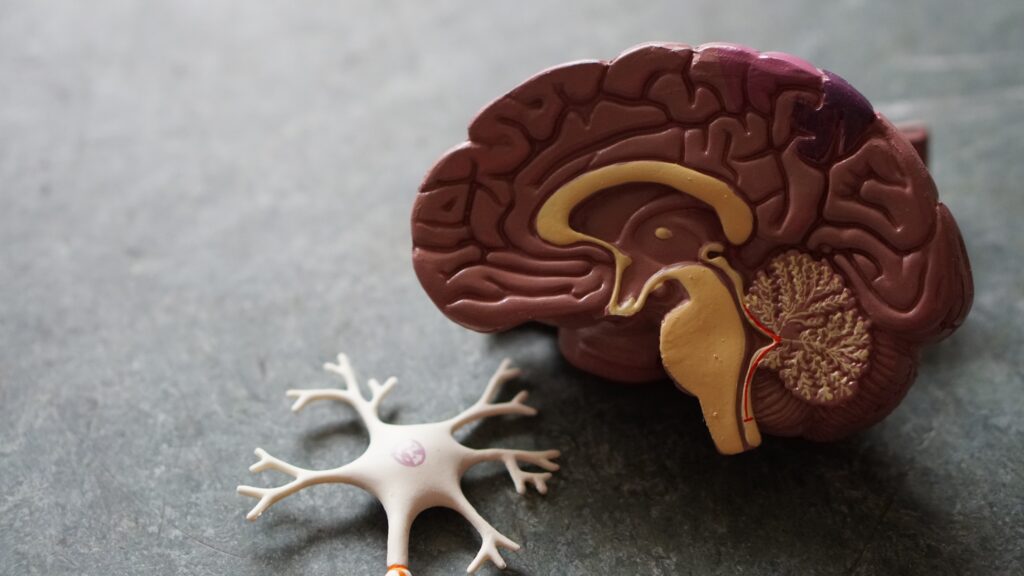How Sleep Can Help You Score High in MCCQE1 Exam

The Medical Council of Canada Qualifying Examination (MCCQE) Part 1 exam is challenging and plays a significant role in the certification process. While this exam is challenging and important and is taken by many people every year, most do not know how important sleep is to this process. However, Everyone likes to pass the MCCQE 1 exam with a high score. For that, you need to be able to perform your best. Therefore, you should be preparing for the MCCQE exam. The first question you need to be asking is, what is the best way to prepare for the exam. There are many options, but they all boil down to one thing: sleep. One of the most critical factors of success is sleep. Proper sleep is vital for learning, memory, and physical health in order to completely recover from the day.
On the other hand, sleep deprivation can significantly impact your ability to focus without distractions (yawning, headache) and studying for the MCCQE1 exam. If you don’t get enough sleep for any reason, you won’t be able to function at your best, which will have a negative impact on your productivity and learning throughout the day. However, with the help of sleep, you can increase your productivity and cover more Medical Council of Canada (MCC) objectives or answer more questions from the question bank during the day, allowing you to stay on track and adhere to your study plan.
In this blog, We’d like to focus on sleep as one of the most crucial aspects of MCCQE1 test preparation. More specifically, the role of sleep in the MCCQE1 exam preparation.
The impact of sleep deprivation on decision making

It goes without saying that sleep is critical to one’s health. We are all aware that we should take at least eight hours of sleep every night; however, many of us do not understand why. Sleep has many benefits, one of which is memory consolidation. Memory consolidation is the process of adding memories to long-term memory. During sleep, the hippocampus replays memories that you created during the day. This is a critical step in the memory consolidation process that helps you learn and remember information.
Sleep is an essential part of any routine. One of the main reasons that it is so important is that it is crucial for memory consolidation. It also helps to create new connections between neurons. To be able to focus on the information and learn the MCC objectives during the day, you need to be well-rested. It is impossible to improve learning if you are not sleeping well. If you are preparing for the MCCQE1 exam, it is important to establish an effective sleep schedule. Sleeping well can make a huge difference.
Sleep is an underrated topic when it comes to learning. This post aims to shed some light on the significance of sleep, its impact on the quality of MCCQE1 exam preparation, and how it can help you score higher on the MCCQE1 exam.
Sleep And The Brain & How it may impact preparation for the MCCQE1 exam?
Sleep is vital to wellness, creativity, productivity, and general quality of life. There are many tissues and systems in the body that are affected by sleep. A good night’s sleep not only supports excellent physical health but also helps our brain process and store information effectively. During sleep, connections in your brain build between neurons to help you recall new knowledge you’ve learned. Yes, Memory formation requires sleep, particularly deep sleep.
The point is brain makes a lot of connections during the day, but not all of them are worth saving; so, sleep is a time in which the brain streamlines the connections it needs. This way, sleep helps consolidate long-term memory, not only through strengthening certain neural connections but also through pruning back unwanted ones.
This means decent sleep after a long day of studying and toggling between the MCC objectives during the preparation for the MCCQE1 exam will allow our brain to store as much information as possible, which ultimately enhances retention on actual exam day. I do not see how developing good sleep habits during preparation for the MCCQE1 exam is a bad idea. The other thing to be aware of is that sleep also seems to nail down creativity, and sleep deprivation strips it away. Good night sleep will enhance divergent thinking, like thinking outside of the box, in new and imaginative ways. So, People who get a night of sleep are much more successful at figuring out the clues in questions on a standardized test like the MCCQE1 exam.

Sleep Improves Memory Consolidation and helps with MCCQE1 exam prep.
It is widely known that obtaining a good night’s sleep allows your body to rest and heal while also allowing your brain to process and develop memories from the day.

Memory formation is often described in terms of three functions:
- Acquisition is the flow of new information into the brain.
- Consolidation the process through which a memory becomes stable
- Recall the ability to recall and access information after it has been stored
Among all three essential functions, memory consolidation – the processes through which a memory becomes stable – occurs during sleep through changes in the synaptic connections and strengthening the neural connections in areas of the brain such as the cerebral cortex and hippocampus of the brain to form our memories.
Sleep helps to solidify the memory and during sleep, short-term memory transfers to long-term memory. Therefore, it is safe to say that sleep affects daytime energy and productivity during the day and directly affects the consolidation of new information into memories, and allows you to store them in your brain.
The Role Of Sleep In The MCCQE1 Preparation
Sleep is critical in studying for the MCCQE 1 exam, and sleep is the cornerstone of your MCCQE1 exam preparation. Those all-nighters can actually harm you in the end, and we will discuss the lack of appropriate sleep during exam preparation and how it affects the outcome later on. A better night’s sleep might be the secret to improved exam performance. Of course, given the fact that there are numerous elements that contribute to late-night sleep, this is easier said than done.

For every important, competitive exam, such as the MCCQE1, there is always a study plan, test-taking strategy, and time management in place. Every one of them has been practiced by a candidate who is prepared for the exam. A candidate who is preparing for the exam, devote time to practice, study, and follow the scheduled study plan rather than the mood every day to cover all requirements of the exam and prevent the need to repeat the exam in order to go to the next phase of the journey.
Pulling an all-nighter, however, disrupt this rhythm and gradually increase the stress level to the point of postponing the exam. Here is how? Sleep deprivation causes physiological alterations that negatively affect performance in a wide range of cognitive domains. Furthermore, sleep deprivation might lead to a decreased motivation to exert effort in the pursuit of goals (study plan). Such deficits in motivation will make the following study more challenging, raise stress and further stifle cognitive performance. If this behavior becomes a habit, then will come a day that you struggle to remember something you read a week ago. This will increase stress dramatically and if the same pattern continues for much longer, the negative thought will take over, and the possibility of postponing the exam date will start rising on the horizon.
The MCCQE1 preparation is like a mission with three objectives: learn, review, and sleep. Various factors, such as your study environment, partner, and temperature of your bedroom, as well as social media, can cause you to deviate from your mission objectives and hinder your achievement. Nevertheless, focusing on your objectives and remaining persistent is key to success and the Ace MCCEQ1 exam. Get the recommended 7 to 8 hours of sleep each night to improve your efficiency and productivity the next day, as well as to help you stick to your study plan and stay on track.
Why Is Sleep So Important In The MCCQE1 Exam?
Now that we know about memory consolidation and the role of sleep-in quality of preparation for the MCCQE1 exam let’s see Why you should sleep well on exam day?

The general format of the MCCQE Part 1 examination is as the following format. There will be two parts to the MCCQE Part 1 exam, one in the morning multiple choices questions (MCQs), and the other in the afternoon (clinical decision-making cases (CDMs), with a break with a 45-minutes break in between. It is more than enough for freshening up and having a snack.
The MCCQE 1 exam has 210 multiple-choice questions (MCQ). Questions are not divided into sections and are designed to be answered independently, one after the other. Five options are available for each question. The answer choices might be similar, but there is always only one best answer, one correct answer for each question. The exam usually takes about 3.5 – 4 hours to complete the exam. On the other hand, in the afternoon, you will have up to three and a half hours to complete the Clinical Decision-Making component, which contains 38 cases with short-menu questions and short-answer questions (65 to 75 questions total).
The general consensus regarding the MCCQE part 1 exam is that it only assesses the medical knowledge and clinical decision-making skills of the candidate, but in reality, the MCCQE 1 exam will challenge your test-taking ability to see how well you can process information and make a critical decision under pressure particularly in the morning where you have to read each question stem, options of the question and the select the correct answer.
Adequate sleep boosts mental functioning, which in turn improves performance on MCCQE part 1 exams and, ultimately, the score earned. Cognitive performance is very susceptible to inadequate sleep duration, defined as fewer than 7 hours a day. Inadequate sleep reduces overall alertness and affects attention, resulting in delayed cognitive processing, as well as interfering with the function of brain regions critical to cognitive processes. The most notably impacted structure is the prefrontal cortex, which executes higher brain functions, including language, working memory, logical reasoning, and creativity.
Since the MCCQE1 exam is not merely a recall of information and challenges candidates with presenting them with a clinical problem and expects them to solve the problem based on the high standard of care practice in Canada, a decline in memory (to recall of critical information), logical reasoning (to a single of out the correct answer) and creativity (to think out of the box and select the correct answer with a minimum clue) on high stake exam like the MCCQE1 exam will significantly impact the outcome and increase the possibility of failure.
Maintain a regular sleep pattern that sets and maintains the timing of the body’s internal clock and can help you fall asleep and get up more quickly; getting up at the same time every day, including on weekends or during holidays, helps you stay on top of your study schedule. A regular sleeping pattern also helps you fall asleep and wake up faster.
Set a bedtime that allows you to obtain at least 7-8 hours of sleep. If you’re not tired, don’t go to bed. Sleeping better aided rather than hindered final exam performance, which is contrary to the majority of all-nighters.

A good night’s sleep improves your overall performance, which means you’ll be able to stay on top of your studies. Sleep improves your recollection, and when you remember more, your revision time becomes shorter, making it much easier to do on a daily basis.
Maintaining a consistent sleep pattern will allow you to better organize your time and make time to work on your test-taking skills. Sleep ensures that three key success elements for the MCCQE 1 exam, excellent recall, creativity, and outstanding performance, come together and give you an advantage over your rival on exam day.
Need Help With Your MCCQE 1 Exam Preparation?
Proper preparation is the key to successful performance. As a result, make every effort to achieve the highest possible score on your MCCQE 1 exam and pass it. If you’re having trouble sticking to your study plan, or if specific topics are difficult for you, then get the help you need to ace the MCCQE 1 exam on the first attempt.

Proper preparation is essential for success on the MCCQE1 exam, and you should make every effort to earn the maximum possible score on the MCCQE 1 exam. If you’re having trouble keeping to your study plan or if certain objectives are challenging for you, get the help you need to pass the MCCQE 1 exam on the first attempt.
Ace Qbank has got your back with over 1900+ high yield questions, many Clinical Decision-Making (CDM) cases, and several self-assessments available to challenge and push you to your limit.
To facilitate preparation for the MCCQE 1 exam, we developed the Ace Qbank based on the Medical Council of Canada (MCC) objectives. Our team reviews the question bank regularly based on current guidelines and recommendations, and we implement any changes we make as soon as possible to enhance your learning experience. Our objective is to keep the information up to date and in compliance with medical standards of care to avoid surprises during the test. At Ace Qbank, we’ve got you covered.
We invite you to sign up for the Ace Qbank demo today and see the difference our elite question bank makes!


